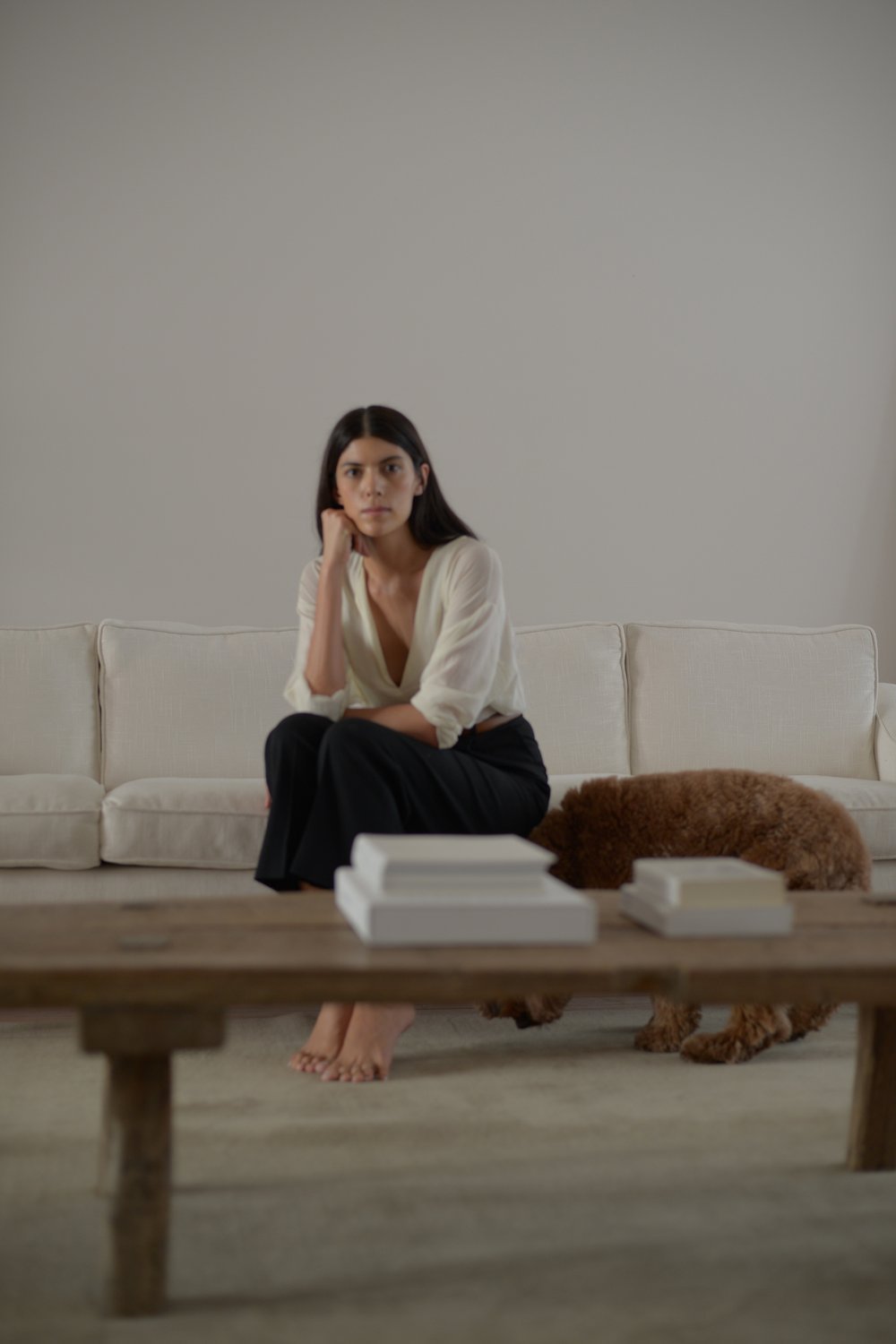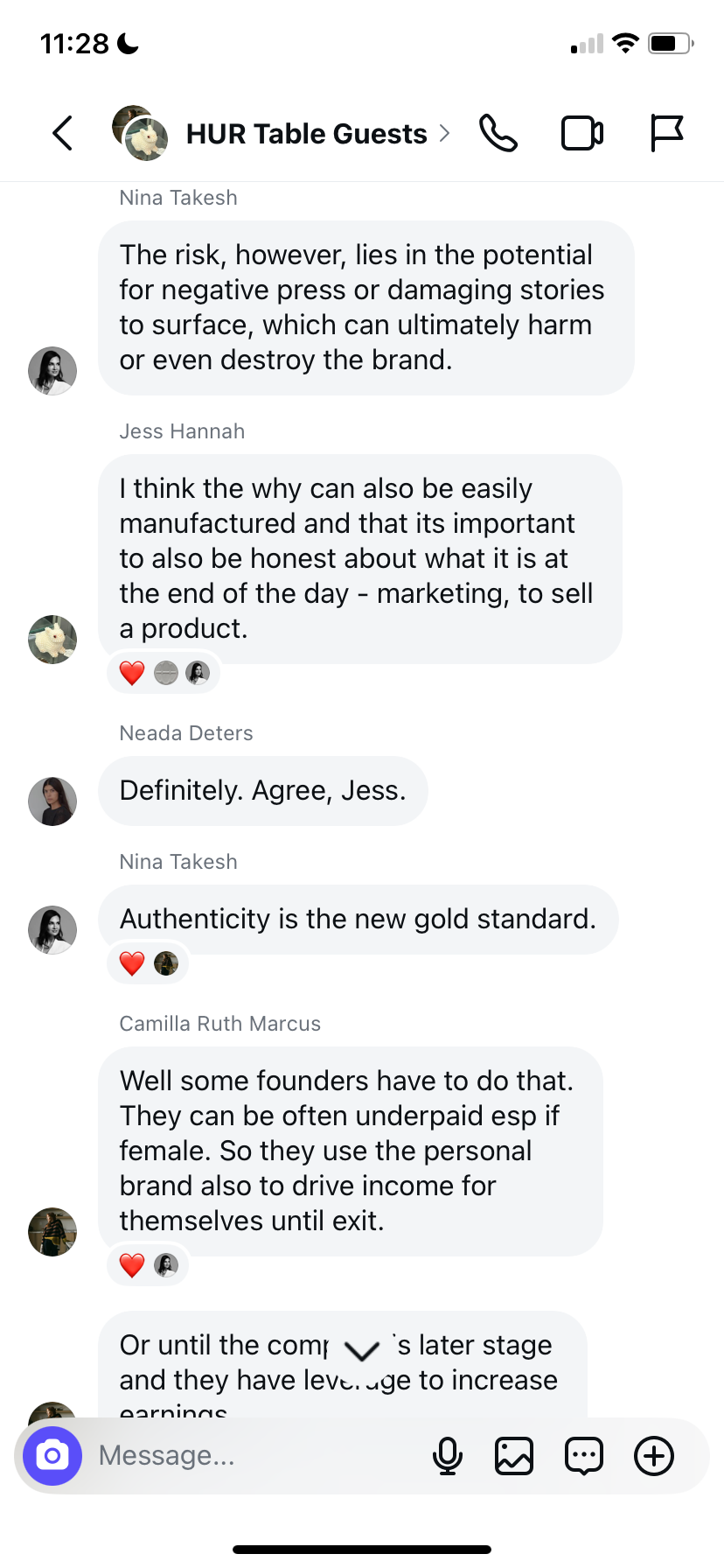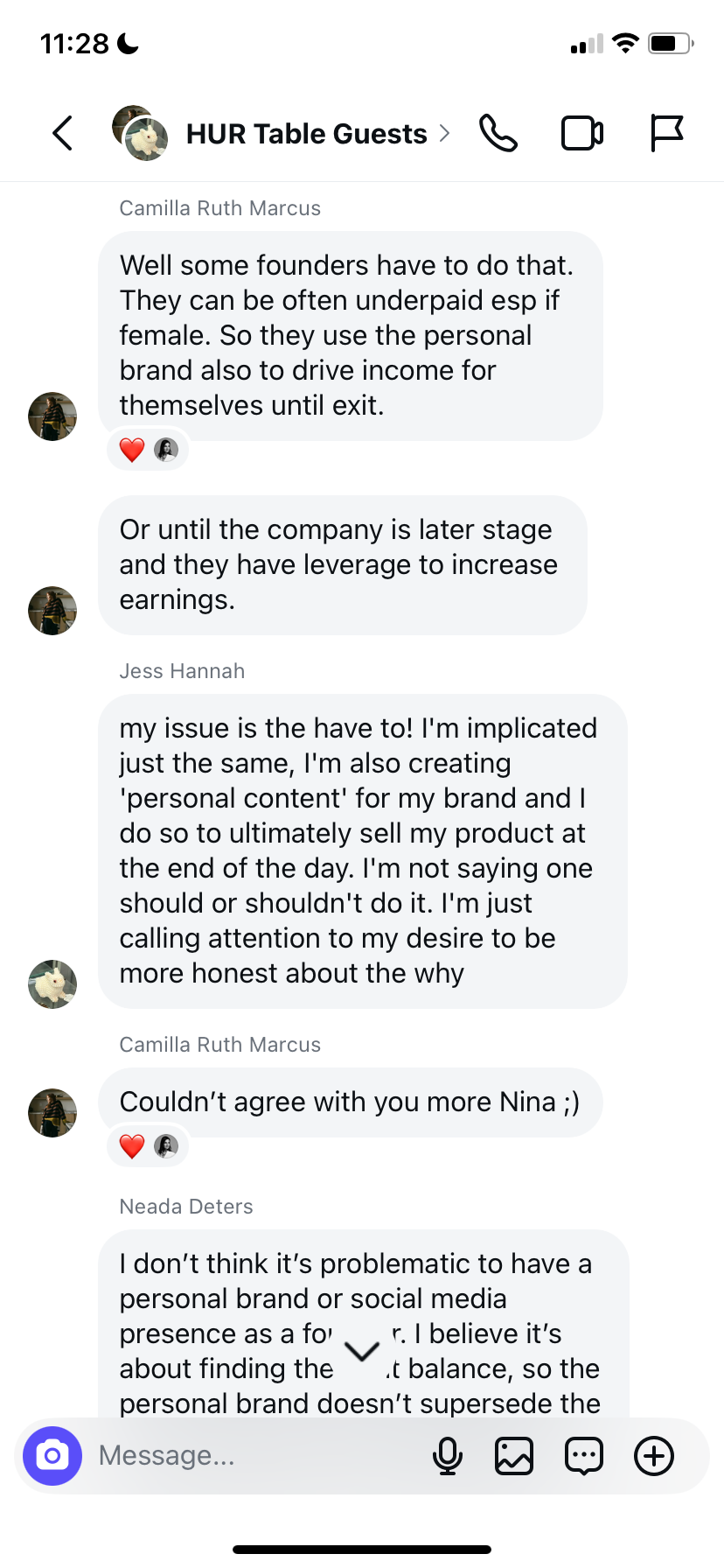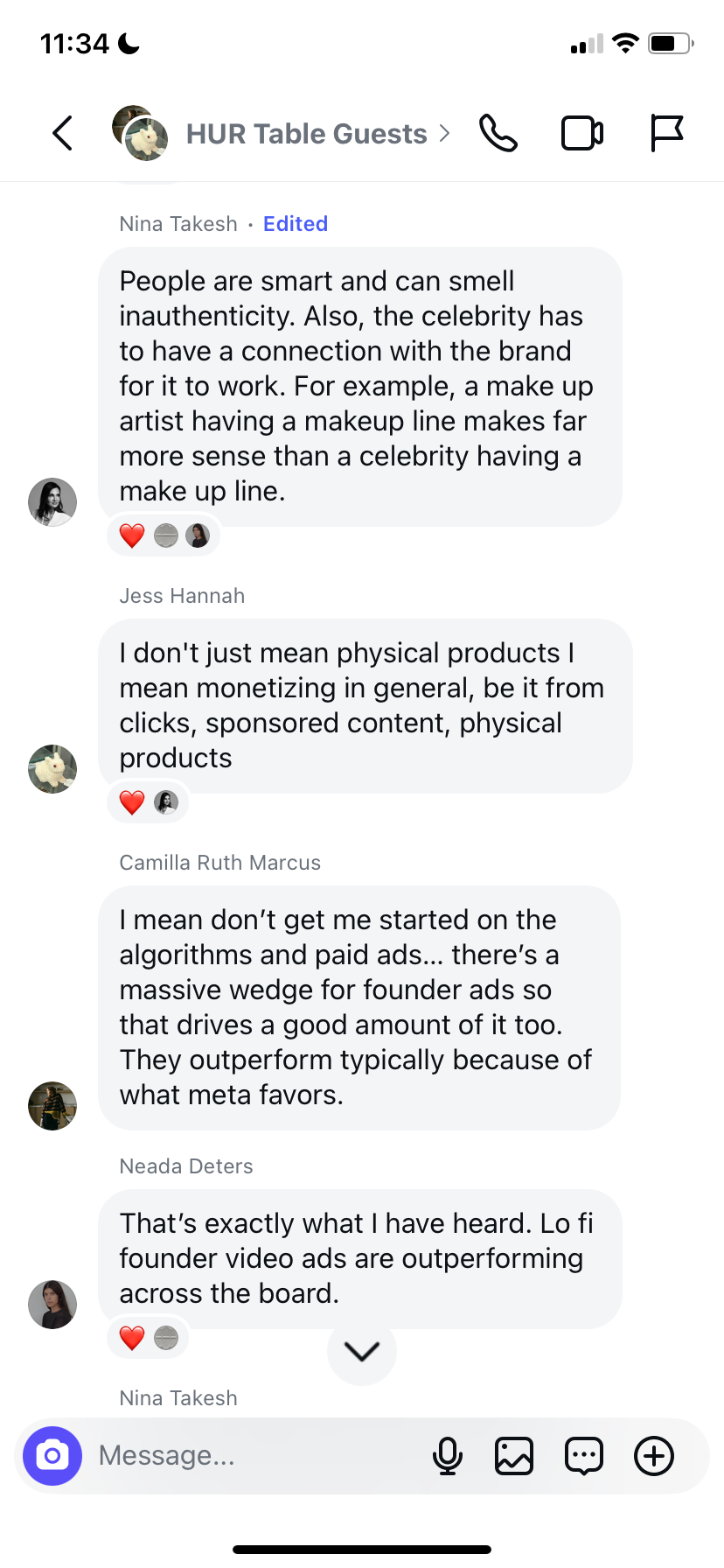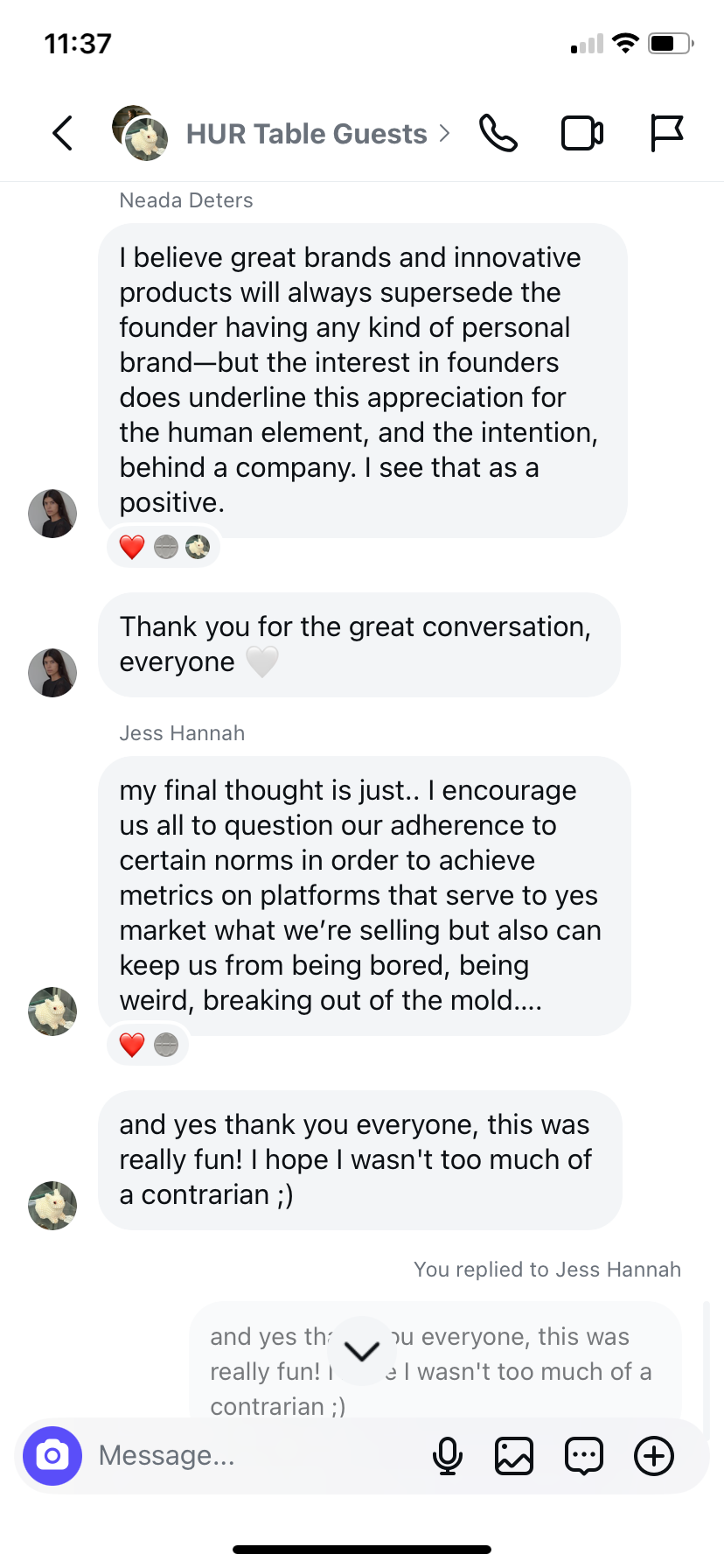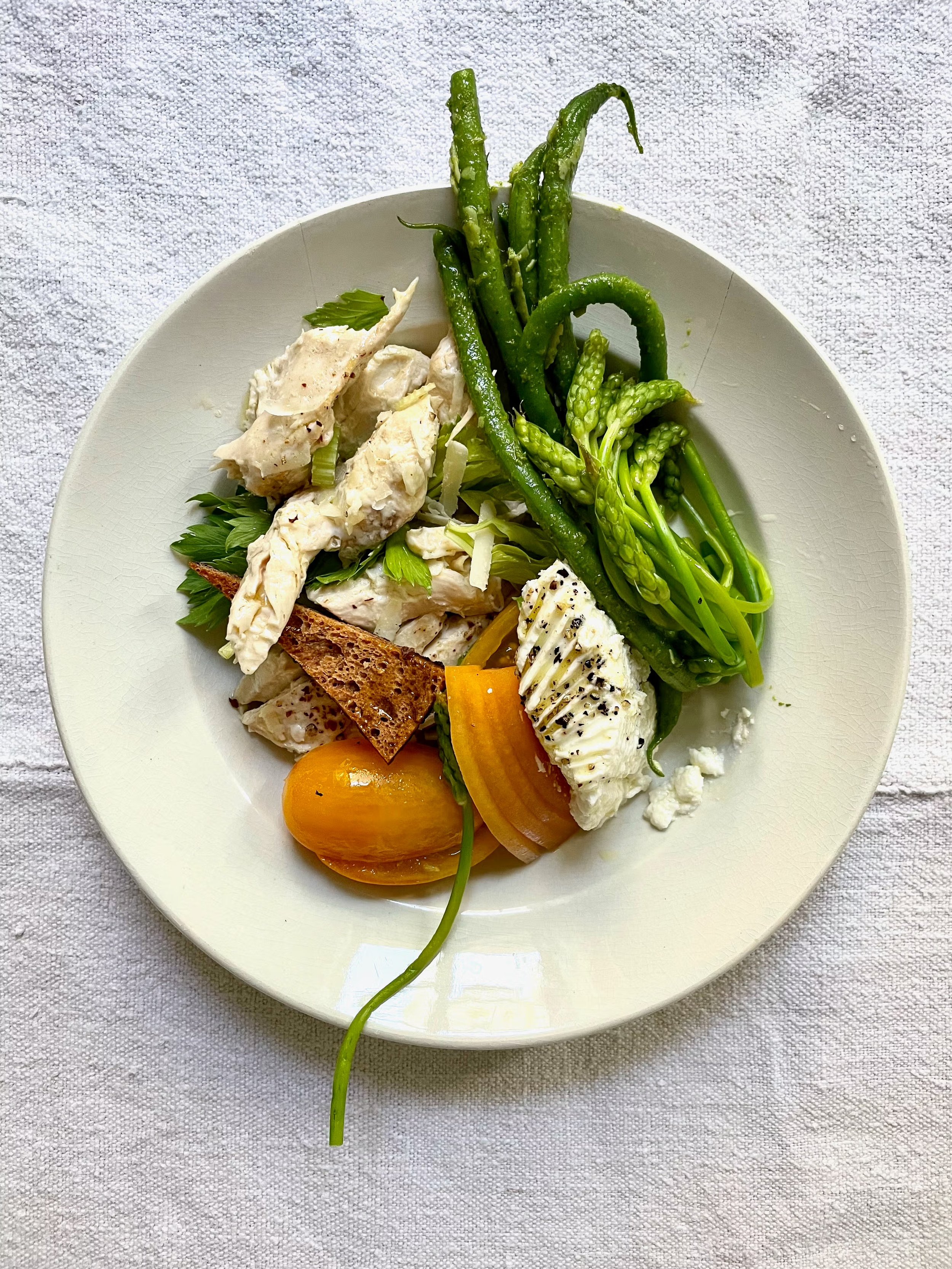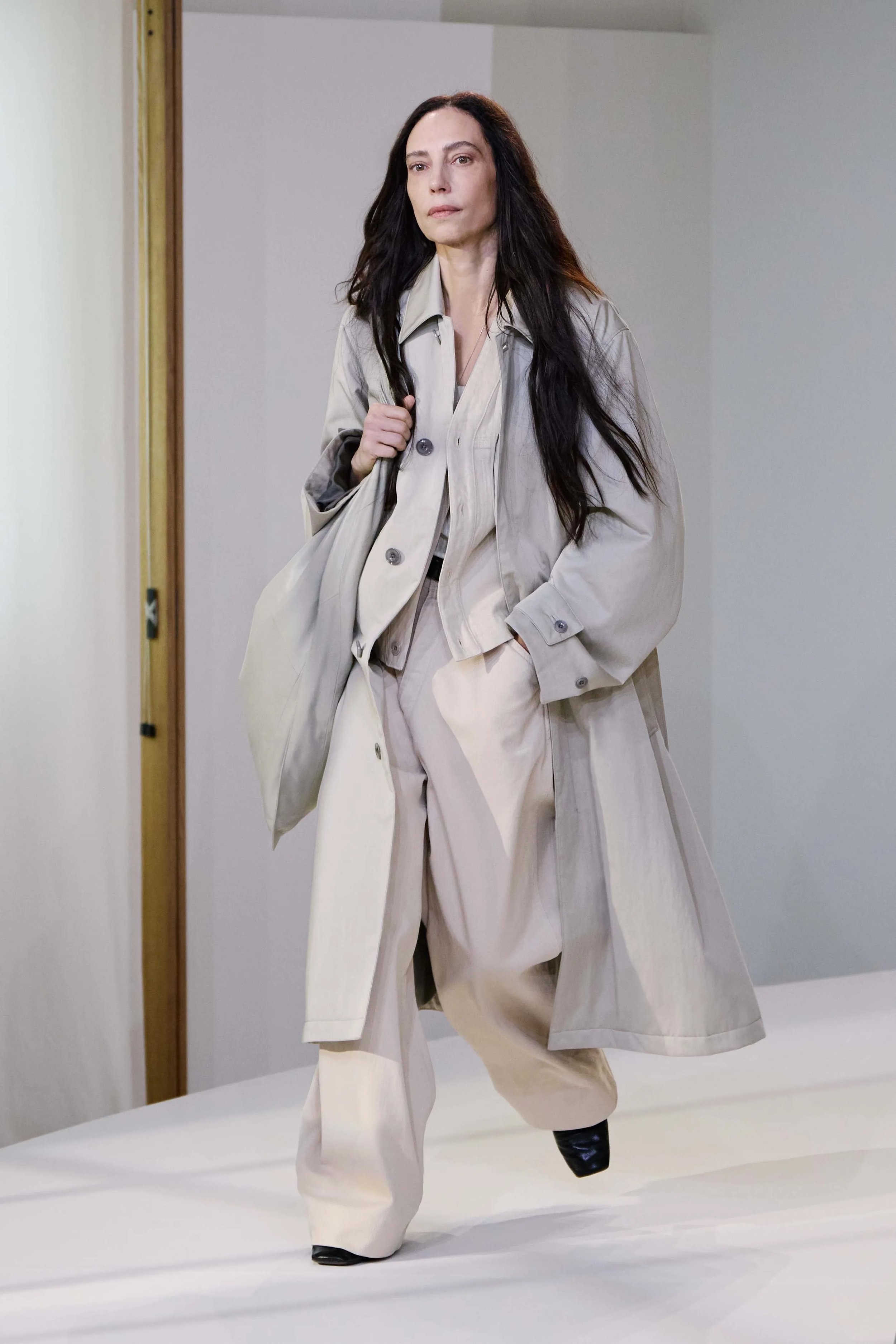To Sell the Product, Do We Have To Sell Ourselves First?
To Sell the Product, Do We Have To Sell Ourselves First?
with Neada Deters, Jess Hannah Révész, Camilla Marcus and Nina Takesh
By HURS Team
Once upon a time, building a business meant building a brand — something distinct, a creation that could stand apart from its creator. Today, that distinction feels increasingly fragile, as the cultural imperative to build a personal brand overtakes every other priority. It’s no longer enough to have a compelling product or a clever idea; the expectation is that you yourself become the product, the spectacle, the daily performance.
This shift is less evolution and more encroachment. It demands a visibility that can overwhelm the work it’s supposed to illuminate. Personal brand isn’t simply a tool; it’s a necessity—often a burden—that conflates presence with value and charisma with credibility. The pressure to be endlessly visible, to curate your public self with surgical precision, can drown out the nuance of the actual business and complicate the fragile boundary between private life and professional persona.
For women, in particular, the stakes feel higher, the scrutiny sharper. The demand to be “the face” of a brand often lands as both responsibility and risk—a relentless balancing act between authenticity and performative accessibility. It’s a labor-intensive dance where stepping back risks erasure, and stepping forward risks exhaustion.
At its worst, the personal brand risks becoming a trap. When the spotlight shifts from what you build to who you are, does your work survive, or does it start to feel like a sideshow? Visibility is currency, yes—but what is the cost of that currency when it exacts the price of privacy, seriousness, or longevity?
This conversation wrestles with the paradox of the founder-as-influencer era: how to hold on to substance in a culture obsessed with surface; how to navigate the pressure to dial your presence up or down for the sake of the brand; how to reckon with the truth behind the polished myths of personal branding. It’s an invitation to think critically about what we lose—and what we gain—when our identities become inseparable from our businesses.

